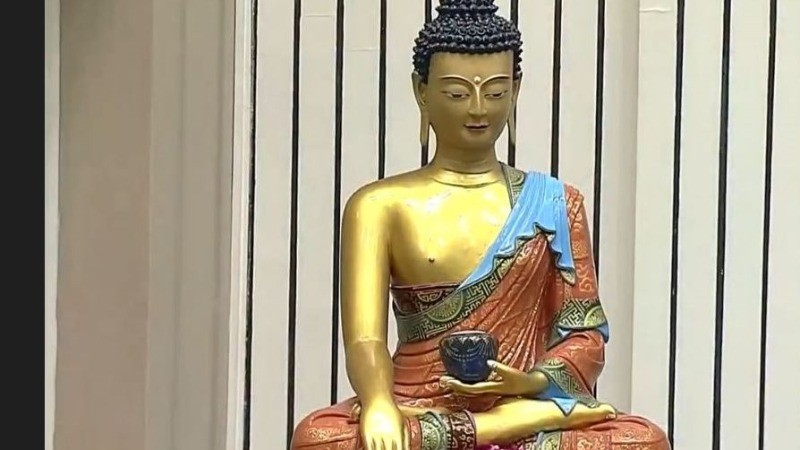
India, the birthplace of Buddhism, holds a profound spiritual significance as the land where Gautama Buddha attained enlightenment and shared his teachings, shaping the lives and thoughts of millions around the world. Central to this spiritual legacy is the Abhidhamma, a key part of Buddhist philosophy that focuses on mental discipline, self-awareness, and ethical conduct.
Significance of International Abhidhamma Divas
Celebrated annually on October 17, International Abhidhamma Divas highlights the enduring relevance of Abhidhamma’s teachings. The day serves as a reminder of the importance of mental discipline and ethical behavior, as taught by Lord Buddha. India plays a crucial role in promoting and preserving this legacy, with sacred sites such as Bodh Gaya symbolizing Buddha’s journey toward enlightenment.
The Divas also serves as a bridge between ancient wisdom and modern spiritual practices, inviting people from all walks of life to engage in mindfulness, introspection, and inner peace. It underscores the universal appeal and timeless relevance of Buddha’s teachings in today’s world.
Historical Roots of Abhidhamma Divas
The origin of this day is linked to an important event in Buddhist history—Buddha’s descent from the Tāvatiṃsa heaven. According to Theravāda Buddhist texts, after achieving enlightenment, Buddha spent three months in this heavenly realm, teaching Abhidhamma to the deities, including his mother. His return to earth is commemorated as Abhidhamma Divas, marked by his descent at Sankassiya, now known as Sankisa in Uttar Pradesh, India.
The Abhidhamma, often referred to as Buddha’s “Higher Teachings,” offers an in-depth analysis of the mind and its processes, providing a foundation for Buddhist psychology. It was passed down by Buddha to his disciple Sariputta, who further elaborated these teachings into what is known as the Abhidhamma Piṭaka.
Teachings of the Abhidhamma
The Abhidhamma delves into the nature of existence, exploring key components such as consciousness (Citta), mental factors (Cetasika), materiality (Rūpa), and final liberation (Nibbāna). Through a detailed analysis, it helps practitioners gain a clearer understanding of reality and mental processes, which are crucial in achieving mental clarity and emotional discipline.
These teachings remain relevant for those seeking spiritual growth and mindfulness in their daily lives, offering insight into the deeper workings of the human mind.
Celebrations of International Abhidhamma Divas 2024
This year, the grand celebrations for International Abhidhamma Divas will take place at Vigyan Bhavan in New Delhi on October 17, 2024. Organized by the Ministry of Culture in collaboration with the International Buddhist Confederation, the event will bring together monks, scholars, and practitioners from 14 countries.
The 2024 celebration holds special significance following the recent recognition of Pali as a Classical Language by the Indian government. Prime Minister Narendra Modi is set to address the gathering, emphasizing the importance of preserving Buddha’s teachings and India’s Buddhist heritage. Two key academic sessions—"The Significance of Abhidhamma in the 21st Century" and "The Origin of Pali Language and its Role in Contemporary Times"—will be held to deepen understanding of Abhidhamma and its relevance today.
Pali Language and Buddhist Literature
Pali, recognized as a Classical Language by the Indian government, is vital in preserving Buddhist texts. It has been the primary language for Buddha’s teachings since 500 B.C. and forms the core of the Tipitaka or "Threefold Basket" of Buddhist scriptures. The recent recognition of Pali highlights its role in safeguarding the spiritual and cultural heritage of Buddhism.
Conclusion
International Abhidhamma Divas is not just a celebration of ancient Buddhist teachings but a reflection on the timeless wisdom of Buddha. As people across the world observe this day, it reaffirms the importance of mental discipline, ethical conduct, and mindfulness in both spiritual and daily life.
India's Linguistic Legacy Grows: Five Languages, Including Bengali and Marathi, Get Classical Status
Five Indian Languages, Including Marathi, Now Have Elite Status; a Welcome Step, Says Sharad Pawar